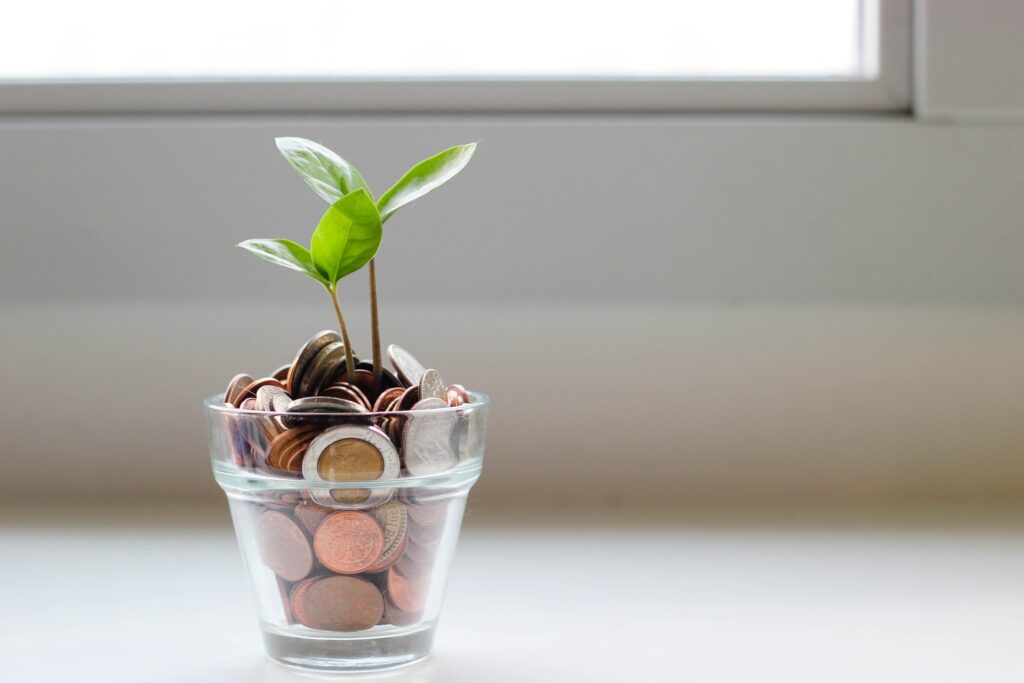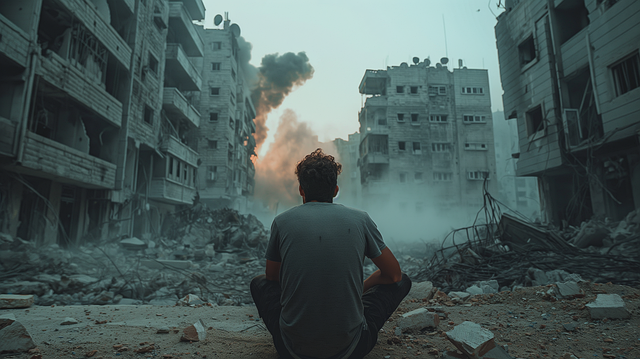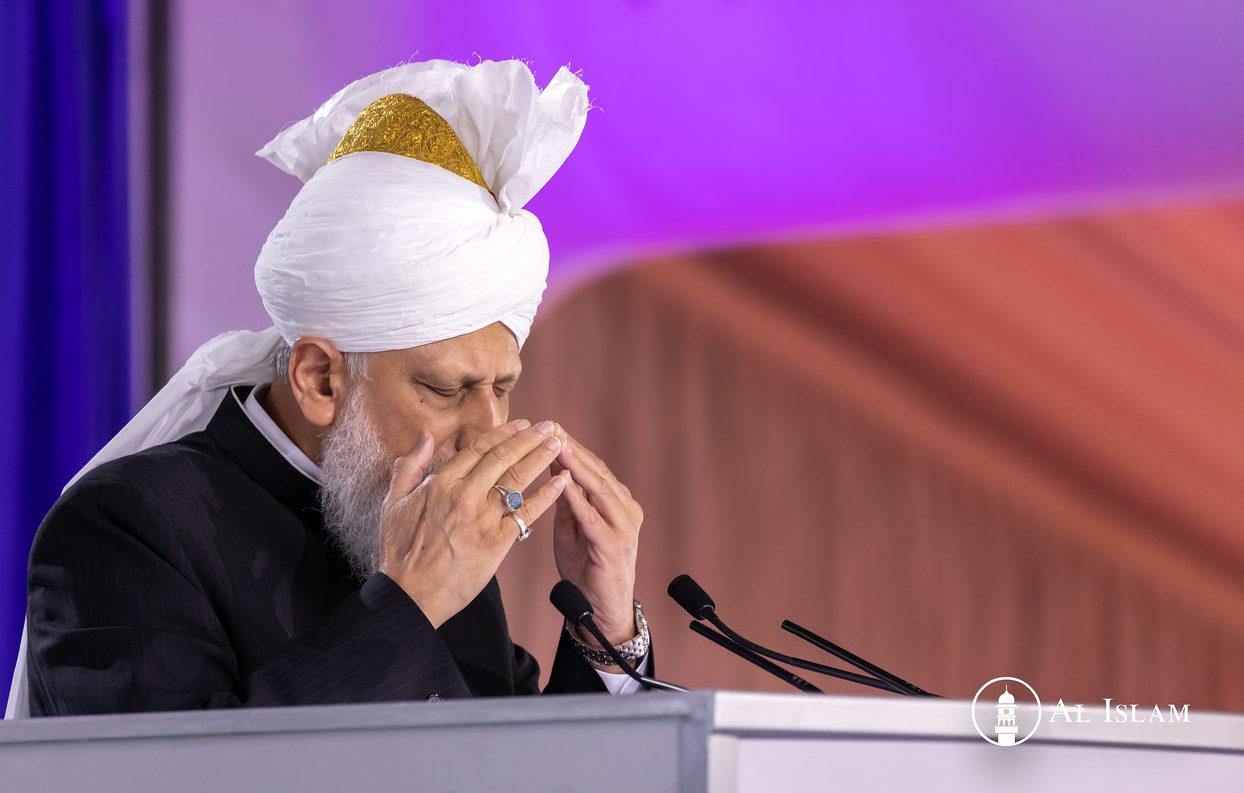One does not become the recipient of bounties by merely observing the fast in Ramadan. Instead, it is essential for a person to fulfil its requisites and focus on good deeds.
QURRATUL AIN MARYAM, KOLKATA
APRIL 23, 2020
The holy month of Ramadan is at our doorstep. Fortunate will be those who will benefit from this blessed month. The blessings are attained by a real understanding of fasting and by making the most of it. The Holy Prophetsa said:
“When Ramadan arrives, the doors of heaven are opened, and the doors of hell are closed, and Satans are chained up.”[1]
However, one does not become the recipient of paradise by merely observing the fast and going through Ramadan. Instead, a person needs to fulfil its requisites and conditions and focus on good deeds.
The true purpose of fasting
The Quranic verses that prescribe fasting stipulate three objectives for it[2]. The first objective is that the person fasting may attain righteousness. Secondly, they may exalt God for His guidance, and thirdly, they may become grateful to Him.
Here, the foremost mentioned objective of fasting is righteousness. One should strive to achieve this purpose during the blessed month of Ramadan. Along with being an essential condition for the acceptance of prayers, righteousness also enables man to get spiritually closer to God Almighty. The Holy Founder of the Ahmadiyya Muslim Community, Hazrat Mirza Ghulam Ahmadas, the Promised Messiah and Mahdi, says:
“One can only gain the nearness of God and come under His protection when one adopts true Taqwa (righteousness) and carries out virtuous deeds.”[3]
If this fundamental purpose of fasting is left out, then the mere act of abstaining from eating and drinking will become futile and will not bear any benefit for man.
Charity: A requisite for righteousness
For attaining righteousness, it is imperative to note that Allah has correlated it with financial sacrifice, as He says:
“Never shall you attain to righteousness unless you spend out of that which you love; and whatever you spend, Allah surely knows it well.”[4]
Thus, charity is one of the most important attributes of Ramadan. This fact is reflected in the life of no less an authority than the Holy Prophetsa himself. Hazrat Ibn Abbasra relates that the Holy Prophetsa was the most generous of all people. However, he used to become even more generous during Ramadan, so much so that his generosity has been analogized to a fast, fierce wind.[5]
The concept of making sacrifices for God has existed among mankind since time immemorial. However, the mode of sacrifice has varied depending on the circumstances of every age. The Promised Messiahas rightly declared that the age of sacrificing one’s life had been replaced by the age of sacrificing one’s wealth[6]. Likewise, abundant blessings and rewards are promised to those who make financial sacrifices in the way of God. The Holy Quran states:
“The similitude of those who spend their wealth for the cause of Allah is like the similitude of a grain of corn which grows seven ears, in each ear a hundred grains. And Allah multiplies it further for whomsoever He pleases; and Allah is Bountiful, All-Knowing.”[7]
Where financial sacrifice and charity are encouraged and are seen as a part of faith, miserliness is disliked in God’s view. Faith and miserliness cannot coexist. The Promised Messiahas said, “Doomed are the people who spend hundreds for show and display, but when it comes to spending in the way of Allah, they find all sorts of excuses. It is shameful indeed that a person should enter this Jamaat and not leave behind his miserliness and meanness”.[8]
The true spirit of sacrifice
To fully comprehend the concept of sacrifice, it is necessary to understand the spirit behind the material contributions and offerings. The Holy Quran states that neither the flesh nor the blood of sacrificial animals reaches God. Instead, it is righteousness behind the act of sacrifice that reaches Him[9]. In essence, only such sacrifices are accepted by God that are sincere and free from any impurity of selfish motives and are done only for the sake of attaining God’s pleasure.
Charity is a cornerstone of Islamic society. The Holy Prophetsa has also said that the best charity is the one that is offered during the month of Ramadan.[10]
Learning from this, one must try to increase the degree of generosity, charity, and financial sacrifice during the blessed month of Ramadan to seek the nearness of God Almighty.
Two kinds of charities
In Islam, there are two kinds of charities: obligatory and voluntary. The obligatory charity is called Zakat, while the voluntary charity is called Sadaqah.
Zakat is the backbone of Islam’s social and economic structure. It has also been counted as a part of worship. The Promised Messiahas says:
“What is Zakat? It is taken from the rich and given to the poor. It teaches the highest level of human sympathy. Thus by coming together of the rich and the poor, the Muslims gain strength. It is a must for the rich to help the poor, and even if it were not so, it is a demand of human sympathy to do so. But nowadays, I see that people care the least even if their neighbour is starving to death, so engrossed are they with their own comfort and enjoyment. I can’t hold back what Allah has told me. Sympathy is a very precious gem that a man has. Allah Almighty says:
“You cannot achieve virtue until you spend out of that which you love.
“This is not the Way to please God, for instance a Hindu’s cow becomes ill and he presents it as Mans. There are many who give to the poor rotten crumbs which are of no use to anyone, and they imagine that they have given charity. Allah does not accept such things, nor is such charity acceptable. He clearly says that you cannot achieve virtue until you spend out of that which you love. Virtue cannot be called virtue until you spend for the propagation of the faith and the sympathy for mankind out of your possessions which you love.”[11]
Special charities in Ramadan
Apart from these, two other charities are specific to Ramadan – Fitrana and Eid fund.
Fitrana or Zakat-ul-Fitr is the obligatory charity paid at the end of Ramadan. Paying Zakat-ul-Fitr was made incumbent by the Holy Prophetsa on every Muslim. Hazrat Ibn Abbasra relates, “The Holy Prophetsa enjoined Zakat-ul-fitr on the one who fasts to purify him from any indecent act or speech and for the purpose of providing food for the needy.”[12]
Fitrana must be offered before or at least on the day of Eid. Sometimes people pay Fitrana before or right after Eid prayers. However, it is better to offer it some days prior to Eid as the very purpose of this charity is to provide the poor and the needy with means to facilitate the celebration of Eid.
Eid fund is separate from Zakat-ul-Fitr, which is offered on the occasion of both Eids. It has existed since the time of the Promised Messiahas. The purpose of Eid fund is that a person may give importance to the requirements of faith and religion as they spend money for their worldly celebrations. During the time of the Promised Messiahas, Ahmadis who had a source of income used to pay one rupee as Eid fund. However, in the present age, it is necessary to offer an amount according to the spirit of this fund and one’s financial position.
During Ramadan, one should try to fulfil the requirements mentioned above, which are essential for gaining bounties from this blessed month. May the Almighty God enable us to do so.
The author is a member of AMWSA (Ahmadi Muslim Women Students Association), and Noorul Islam Committee Lajna in Kolkata.
END NOTES
[1] Sahih al-Bukhari, Kitab as-Saum (Book on Fasting)
[2] Holy Quran 2:184-186
[3] Malfuzat, v. 8, p. 371
[4] Holy Quran 3:93
[5] Sahih al-Bukhari, Kitab as-Saum (Book on Fasting)
[6] Al Hakam, 10 July 1903
[7] Holy Quran 2:262
[8] Majmua Ishtiharat (Collection of Adveritsements), v. 3, p. 156
[9] Holy Quran 22:38
[10] Jami’ at-Tirmidhi, Kitab az-Zakat (Book on Zakat)
[11] Al Badr Qadian October 1908
[12] Bulugh al-Maram, Kitab az-Zakat (Book on Zakat)












0 Comments